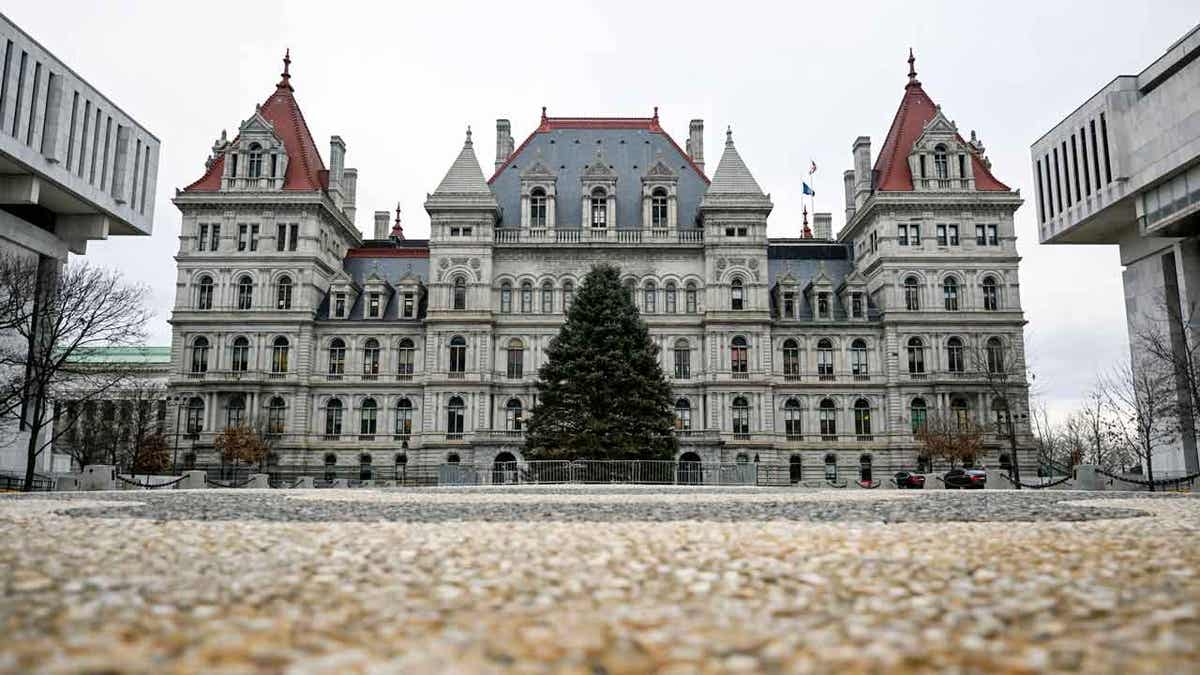How to kick out squatters, ‘switch the tables on them’: Flash Shelton
United Handyman Association founder Flash Shelton’s ‘How I removed squatters in less than a day’ video gets almost 3 million views after his mother’s vacant house was lived in for a month.
New York property owners dealing with the "growing problem" of squatters face state laws that forbid them from locking interlopers out of a home or turning off utilities.
"It is a growing problem all over the state of New York so it’s best to treat your properties like a business," attorney Stephen Hoffman, from Hinman, Howard, and Kattell, told WETM.
In New York, trespassing and squatting are categorized as two different issues, with trespassing ruled illegal, while squatting is often considered a civil matter that relies on the courts for eviction.
Squatters in the state are provided protections from attempted evictions by homeowners, who are barred from locking out squatters without a court order and involving police, WETM reported. Homeowners are also unable to stop utilities service in the homes, according to the station.
HANDYMAN TURNS THE TABLES ON SQUATTERS WHO TOOK OVER HIS MOTHER'S HOUSE

Downtown Manhattan's skyline, Aug. 21, 2021 (Reuters/Andrew Kelly)
"In order to properly evict a squatter the owner must serve that occupant a 10-day notice to vacate the property," Hoffman told the outlet. "After 10 days, the owner can go to court and seek holdover eviction. Once the petition is filed and the proceedings are successful the owner can then give the squatter a two-week notice to vacate the property."
CALIFORNIA LANDLORDS FURIOUS AS COVID EVICTION BANS DRAG ON: 'I'M OWED $120K' IN RENT PAYMENTS
In New York, squatters only need 30 days to establish residency in a home, meaning homeowners and landlords must act immediately if they discover a squatter.
Squatting is defined in different ways in New York, such as: actual possession, when a person takes control of a property from a homeowner; open and notorious possession, when a squatter is obviously living in the home; hostile possession, when a squatter takes over a home and infringes on the owner’s rights while the squatter provides reasonable belief they are entitled to the property, according to Property Club, a real estate consultant firm in New York.
There is also exclusive possession, when a squatter is the only person using the home, and continuous possession, defined as when a squatter has been on the property for more than 10 years.
MARYLAND RESIDENT FINDS SQUATTERS IN HER BEDROOM, $49K IN BELONGINGS CLEANED OUT
To evict a squatter, New York landlords and homeowners send notices informing the people they must pay the amount of rent owed or move out. If the person has not moved out, landlords can file a summary eviction proceeding with the county.
If the landlord or homeowner wins the eviction proceeding, the local sheriff’s office will remove the squatters.

The New York state Capitol before Gov. Kathy Hochul delivers her State of the State address, Jan. 10, 2023, in Albany. (AP Photo/Hans Pennink)
In Watertown, New York, last week a landlord threatened to stop investing in properties in the town if squatters aren’t given strong consequences.
"I went to court for a person I didn’t even put on my lease," landlord Ed Smalls said at a city council meeting. "I didn’t even know them!"
CLICK HERE TO GET THE FOX NEWS APP
"The law is the law, we must interpret the law for our area and make sure it’s not just for New York and Albany, because up here it’s different," he said.























